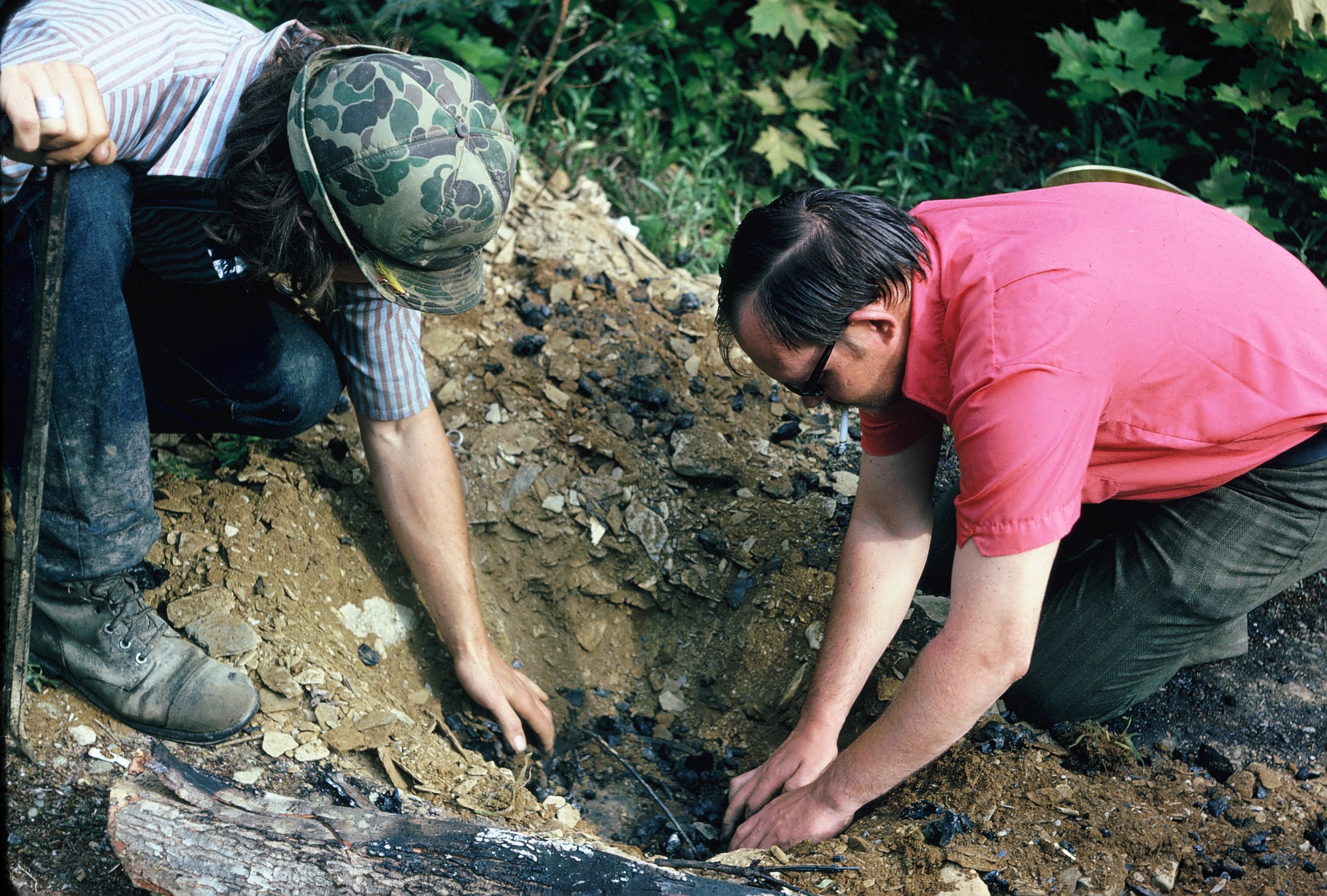It’s Saturday, and that means baked beans throughout Northern Maine. Most grocery stores sell fresh-baked beans (no canned stuff) and bread hot from the oven. It’s longstanding tradition with roots going back to the Pilgrims/Puritans. The tradition mingles with another: Bean-hole Beans.
Early Massachusetts settlers adopted the Native American tradition of baking beans in pots buried in the ground. For the religious folk, beans baked overnight would feed people on the Sabbath, the day of rest, which started on Saturday evening. The Puritans adapted Native bean recipes, also replacing—or rather changing—corn bread for brown bread. Nearly 400 hundred years later, throughout much of Maine, the tradition of Saturday night baked beans is steadfastly observed, with family replacing religion.
The Native American tradition continued in another way, closer to its roots: Loggers and lumberjacks cooked what are called Bean-hole Beans. I grew up with this tradition, thanks to my dad. During the summer, my dad and uncle would take my cousin and I up into the Allagash Wilderness for three weeks of real camping. During my first trip, at age seven, the hunting party captured a bear cub.
My uncle rented from a timber company an abandoned lumberjack camp the elders called “Dodge City.” In later years, after roughnecks burned down Dodge City, he rented a more secluded, single lumberjack cabin. I tasted my first Bean-hole Beans at Dodge City. The ritual: The men would dig a hole, which my cousin and I would fill with loose hardwood collected from the forest. Around dusk, the men would turn the wood to boundfire, which sent flickering specks upwards to the Milky Way and smoke to the ground as defense against mosquitos and black flies. The men would guzzle booze, while my cousin and I burned marshmallows to black on sticks.
Before the men collapsed from boozing and the fire turned to embers, my uncle and dad would conduct the burial ceremony—prepared yellow-eye beans in covered cast iron pot. The men would bury the pot in the hot coals, where the beans would cook covered overnight in the hole. Hence, the name Bean-hole Beans. My dad used pretty traditional Maine yellow-eye bean recipes, but he often added something extra, particularly with respect to meat. Maybe hot dogs or even partridge. Yankee magazine has a Bean-hole Bean recipe, which I’ve never tried.
I have fond memories of those Saturday night bonfires turned Sunday morning baked bean breakfasts. My dad probably has pictures somewhere (for now, the photo above shows him digging out cast-iron pot full of fresh-baked beans). He favored shooting slides, so I might have to sift hard to find the right ones. But home, where he keeps the pictures, is a long haul from Washington, D.C. For perspective, it’s as far from my hometown in Northern Maine to Portland in the south as Portland is from New York City. While nowhere as expansive as Western States like Arizona, Maine is big for the Northeast. My home county, Aroostook, is largest county east of the Mississippi River.
When outsiders think Maine, often it’s about lobsters, fishing towns or moose. My main Maine view is potatoes, lumbering, moose, snow and, of course, fresh baked beans. And from the hole, they’re all the tastier.
Photo Credit: Glenwood Wilcox
Do you have a food or Maine life that you’d like told? Please email Joe Wilcox: joewilcox at gmail dot com.
